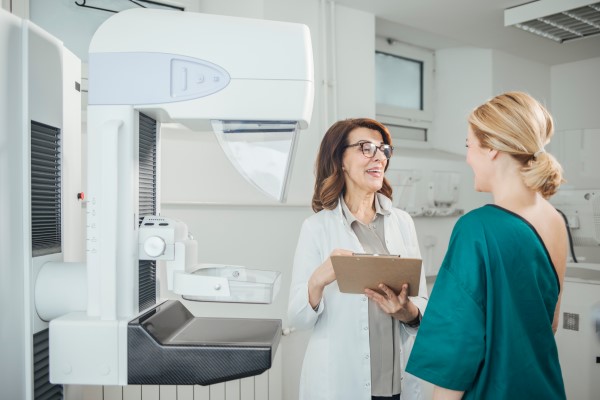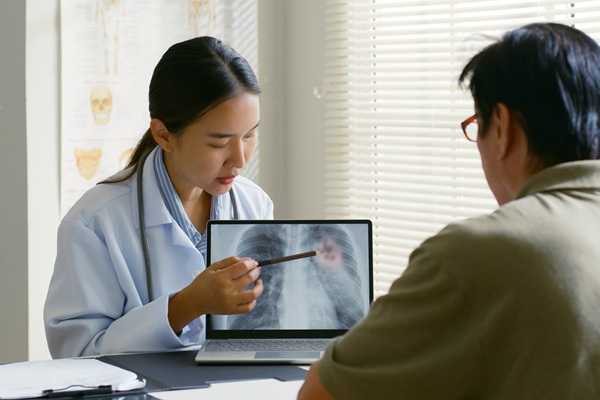What to Ask an Oncologist About Breast Cancer

If you have a cancer diagnosis, your oncologist will be an indispensable asset moving forward. Finding out you have breast cancer can be a shock, but this does not have to be a death sentence or even ruin your quality of life. Though you will experience some changes, you can be prepared and find relief. As you meet with your doctor, there are some important questions you should ask.
Symptoms and effects of breast cancer
Breast cancer can affect women of all ages, but it is most common in women over the age of 50. There are some clues that a woman may have this disease. Some of the most evident include lumps or swelling of all or part of the breast. There may also be breast or nipple pain. Some women with breast cancer may have nipple discharge or flaking skin of the breast. The shape of the woman’s breast may also change.
Ask about the outlook
One of the first things a patient will want to ask their oncologist is whether recovery is possible. Fortunately, if detected and treated early, patients can beat breast cancer and survive the disease. When a person meets with the doctor, the patient should ask about how much pain and discomfort to expect. The doctor will be frank when discussing survival rates and recovery timetables.
Ask about treatments
Once the patient understands what they are up against, it is critical to know how to combat the disease. The oncologist may start by performing surgery to remove part or all of the breast. Sometimes, only removing the lump itself will be enough to get rid of the cancer. In more serious cases, the doctor may have to remove both breasts. Radiation and chemotherapy may also be the right approach when the cancer cells are growing and spreading quickly.
Ask about prevention
Some patients may visit the oncologist thinking they have breast cancer but ultimately do not. Still, such a person will want to know how to continue to keep the disease away. There are some effective steps that people can take to maintain healthy breasts. Women should have a regular mammogram to screen for breast cancer. Exercise and maintaining a healthy body weight can help stave off the condition. Also, avoiding alcohol will reduce a person’s risk.
Ask about self-care
Before and after breast cancer treatments, the patient should continue to visit the oncologist. The doctor will examine the patient and conduct follow-up appointments. Women should watch their diet. It is also important to get plenty of rest and exercise.
Your oncologist is critical to your health
If you have learned that you have breast cancer, you may be scared. It is normal to feel this way, as this is a serious disease. Your oncologist will work closely with you to ensure that you get the right care and treatment. If you believe you have this disease, do not delay calling your doctor. The sooner you can battle the illness, the more likely you are to restore your health.
Get more information about Lindenberg Cancer & Hematology Center in Marlton at https://lindenbergcancer.com.
Check out what others are saying about our services on Yelp: Read our Yelp reviews.
Recent Posts
Blood clot disorders include a spectrum of inherited or acquired conditions that disrupt healthy circulation, elevate the risk of blockage, and threaten vital organs. An oncologist frequently monitors patients for clotting complications because cancer, certain chemotherapies, and reduced mobility intensify thrombotic tendencies. Early recognition of warning signs, together with prompt intervention, significantly lowers the possibility…
Lung cancer treatment has advanced significantly in recent years, allowing for more personalized approaches that improve outcomes and reduce unnecessary side effects. Personalized lung cancer treatment plans are developed based on several factors, including the type and stage of cancer, genetic markers, overall health, and the patient's unique response to specific therapies. These tailored strategies…
An ovarian cancer diagnosis can be scary, as this form of cancer often develops without noticeable symptoms in the early stages. As the disease progresses, it can become more difficult to treat, making early awareness important. Knowing the signs, understanding the diagnostic process, and learning about treatment options from an oncologist can offer patients hope…
Gynecological cancer treatments target cancers that affect the female reproductive organs, such as ovarian, uterine, cervical, vaginal, and vulvar cancers. Fortunately, there have been significant medical advances in cancer treatment that have greatly improved patient outcomes, allowing oncologists to adjust therapies to fit each patient's needs and overall health. These targeted treatments work better than…


